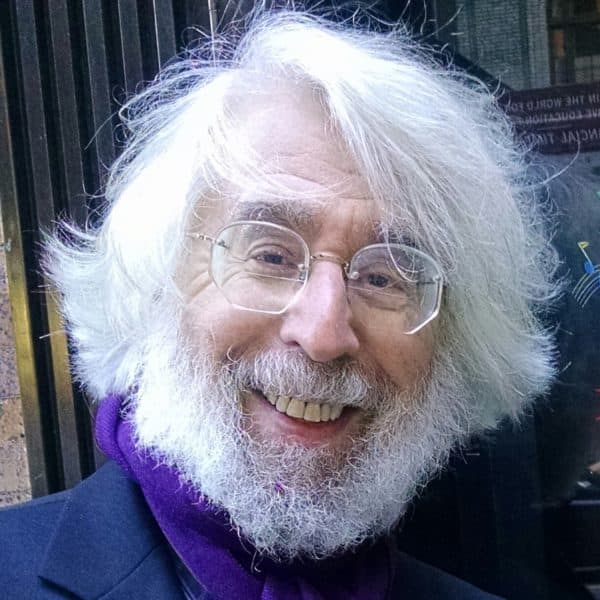Advertisement
Winter Arts Preview
Here's What's On Tap In The Classical Music World This Winter
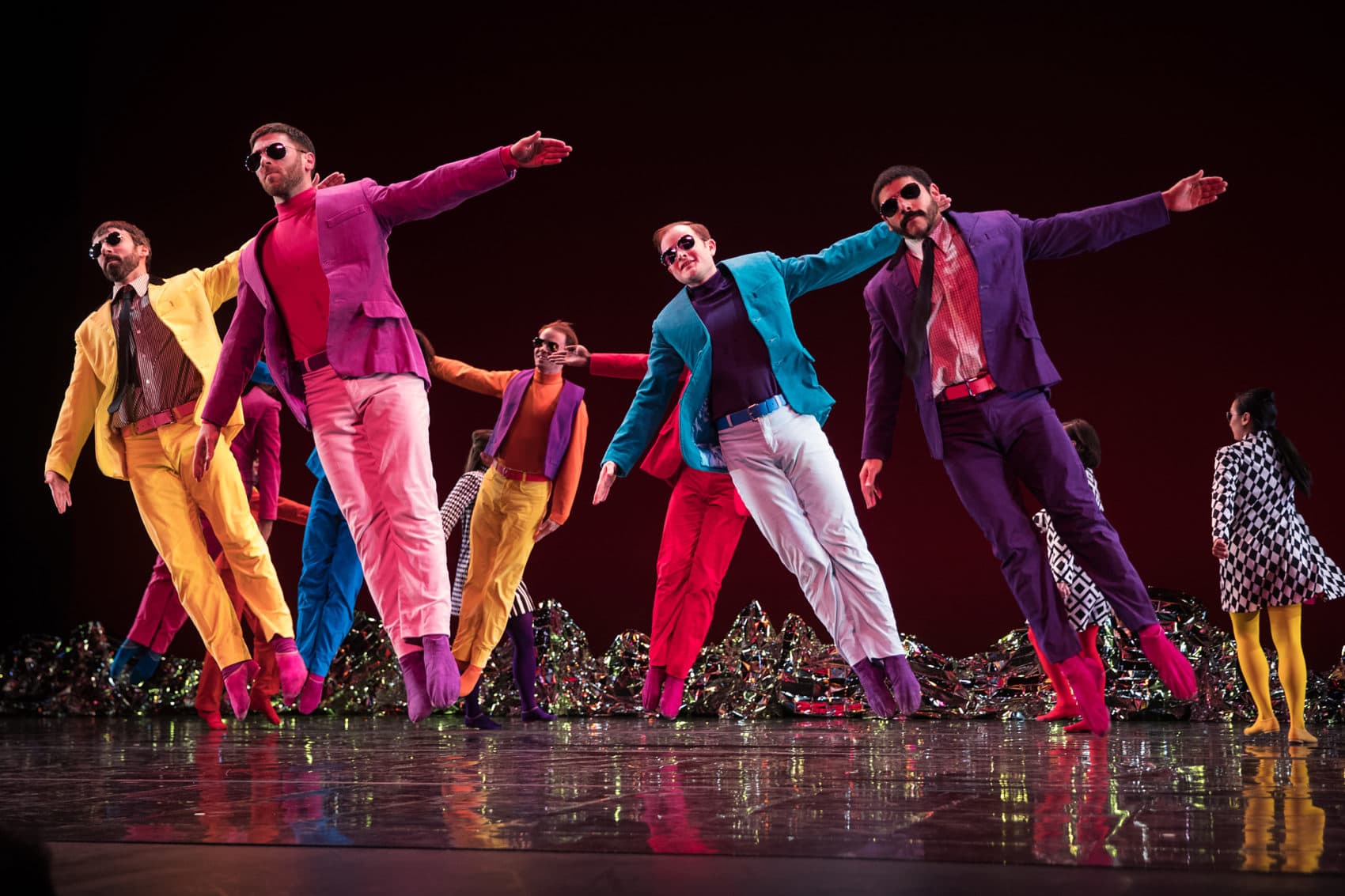
The solstice is past and the days are getting longer — what could be better news? And for classical music lovers, there’s a happy new season to look forward to.
Celebrities Coming To Town
I can’t deny it. The single event I’m most eager to attend is "Pepperland" — the kaleidoscopically inventive, funny and touching dance work by Mark Morris, with a fascinating original score by Ethan Iverson (Morris’ former music director) based on the music of the Beatles’ 1967 album “Sgt. Pepper’s Lonely Hearts Club Band” (wait til you hear the theremin!). The work was commissioned by the city of Liverpool to celebrate the 50th anniversary of the landmark album, and it had its premiere there in 2017. Now it’s been making its way across the United States. I saw it at the Hopkins Center in Hanover, New Hampshire last June. Boston's turn comes at the Shubert Theatre from Feb. 8 to 10.
Other classical music Celebrity Series programs I find especially exciting include:
- A concert by leading baritone Thomas Hampson and his son-in-law, bass-baritone Luca Pisaroni, who are teaming up for an evening they’re calling “No Tenors Allowed.” We’re promised selections from Mozart (Pisaroni, a skilled comedian, is probably most familiar to Metropolitan Opera audiences as Don Giovanni’s comic servant Leporello), Verdi, and Broadway’s Rodgers and Hammerstein (at Jordan Hall on Feb. 1).
- The recital by the beloved Met mezzo-soprano Joyce DiDonato, which, we are told, will be 90 uninterrupted minutes of improvisation, from art songs to jazz (at Jordan Hall, March 1).
- The two-piano recital by virtuoso pianist Kirill Gerstein and composer/pianist Thomas Adès (in collaboration with the Boston Symphony Orchestra, where Adès is currently “artistic partner”). Their fascinating program includes work by Debussy (including the brief but rarely heard “Lindaraja”), Shostakovich’s piano arrangement of Stravinsky’s “Symphony of Psalms,” and Adès’ “concert paraphrase” of music from his notorious opera "Powder Her Face" (at Jordan Hall, March 15).
The Celebrity Series is also bringing two important orchestras: the San Francisco Symphony, with Michael Tilson Thomas conducting the beloved Mendelssohn Violin Concerto with the great Christian Tetzlaff and Beethoven's "Eroica" symphony (at Symphony Hall on March 24); and the Australian Chamber Orchestra, with a program of Bach, Beethoven quartets arranged for string orchestra, and one of Boston's favorite pianists, Paul Lewis, playing Mozart's delicious early Concerto No. 12 (at Jordan Hall on April 13).
A group of stars are making their first appearance together in Boston. Pianist Jeremy Denk, violinist Joshua Bell and cellist Steven Isserlis are playing trios by Mendelssohn, Rachmaninoff, Shostakovich and Ravel. Can the other two shake Bell out of his usual complacent brilliance? (We'll see at Symphony Hall on April 28.)
John Harbison At 80
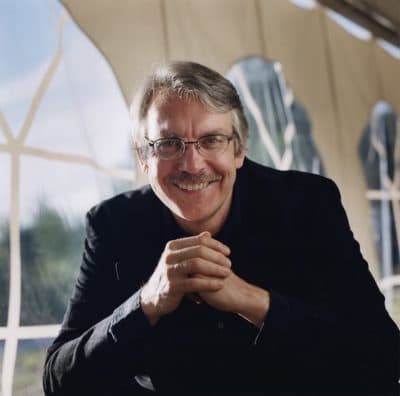
The distinguished Pulitzer Prize and MacArthur "Genius Grant" recipient John Harbison turned 80 this past December. There have already been several celebrations including a powerful performance of his Symphony No. 2 at the BSO, led by guest conductor Sir Andrew Davis, and a splendid Boston Symphony Chamber Players concert devoted to four of his chamber works.
Since Harbison has for decades been associated with Emmanuel Music, I’m especially looking forward to two one-hour “late night at Emmanuel” concerts, which will feature the Boston premiere of his String Quartet No. 6 and “Thanks, Victor,” an arrangement for string quartet of Victor Young songs (both with the Lydian String Quartet), and the world premiere of “Towards a New Popular Song,” six new Harbison tunes, with a stellar vocal septet and the composer himself at the piano. We are promised "birthday surprises" between the two concerts (Emmanuel Church, Jan. 26).
Later in the season, Gil Rose’s Boston Modern Orchestra Project (BMOP) will be offering its tribute to Harbison in an evening featuring Harbison’s Viola Concerto, his “Milosz Songs” with celebrated soprano Dawn Upshaw (who was the original Daisy in Harbison’s “Great Gatsby” opera at the Met), and his Symphony No. 6 (Jordan Hall, April 7).
Advertisement
One of the four upcoming concerts by the estimable Boston Chamber Music Society, with the magnificent violist Marcus Thompson as artistic director, includes John Harbison’s 2013 String Trio — a feature of which is music based on the spelling of the name of soccer player Lionel Messi (Sanders Theatre, April 14). And Emmanuel Music director Ryan Turner will lead Bach’s Easter Oratorio and Harbison’s Old Testament “Abraham,” while Harbison himself will conduct his New Testament cantata “The Supper at Emmaus” (Emmanuel Church, April 27).
Boston Symphony Orchestra
For some music lovers, Boston is defined by the Boston Symphony Orchestra, one of the world’s greatest classical ensembles and one of the “top five” American orchestras. Some people (including many in the orchestra) seem to adore the young Latvian maestro Andris Nelsons — though good as he is, some listeners, myself included, are yet to be convinced that he is capable of greatness.
This season, the Finnish conductor John Storgårds makes his BSO debut in a program of Finnish music — Kaija Saariaho’s brief “Ciel d’hiver” and the last two Sibelius symphonies — along with a brilliant Mozart piano concerto (No. 22) with German pianist Martin Helmchen (Jan. 24 to 26 and 29). Saariaho herself will curate a free hour-long concert of mostly her own work performed by students at the New England Conservatory, and will discuss her work just before the first of these BSO concerts (NEC’s Williams Hall, Jan. 24).
I’m most excited about a March concert: Thomas Adès conducting pianist Kirill Gerstein in the world premiere of Adès’ Piano Concerto, commissioned by the BSO. The rest of the program consists of Liszt’s chilling “Mephisto Waltz” and Tchaikovsky’s Symphony No. 4. Should be a very rich event (March 7 to 9). Gerstein and Adès (as pianist) then share the Jordan Hall stage in the aforementioned two-piano recital (March 15).
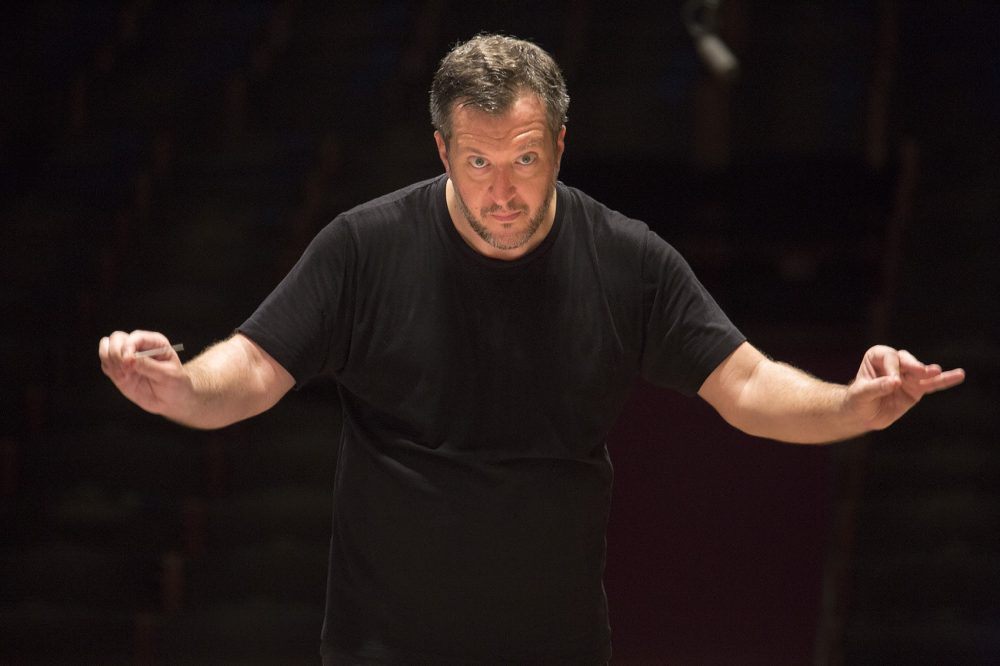
Nelsons is on the podium with one of his favorite singers and one of his favorite composers. Soprano Renée Fleming is no longer singing complete operas, so this is our chance to hear her in the glorious final scene from Richard Strauss’ last opera, “Capriccio” (a “conversation piece” about whether music is greater than poetry). This will be preceded by some of the most beautiful orchestral music in that opera, and followed by Strauss’ famous tone poem (think Kubrick’s “2001”), “Also Sprach Zarathustra” (March 14 to 16).
The most eagerly anticipated guest conductor of the season is surely the LA Philharmonic’s Gustavo Dudamel, who’ll be spending two weeks with the BSO. The first program might be an inspired pairing: Schumann’s "Spring Symphony" and Stravinsky’s “Rite of Spring.” Will these two works, so different in time and temperament, really have something in common besides their titles? I can’t wait to find out (April 5, 6, 9). Both of these masterpieces are familiar to BSO audiences and players alike. But the following week, Dudamel, who is from Venezuela and a product of its revolutionary music education program El Sistema, conducts a program of works by Latin American composers: his fellow Venezuelans Paul Desenne and Antonio Estévez (neither of whom has ever been played by the BSO), and the Argentinian composer Alberto Ginastera (whose works have been played far more by the Boston Pops than the BSO). Ginaster's Piano Concerto No. 1 was commissioned by the Koussevitzky Foundation and is dedicated to the great former BSO music director Serge Koussevitzky and his wife Natalie, but it’s been programmed by the BSO only once before, by conductor Erich Leinsdorf in 1968. So Dudamel’s entire program is essentially new to the current BSO and its audience (April 11 to 13).
Making their BSO debuts are British conductor Andrew Manze and Italian pianist Francesco Piemontese. The concert will include the first BSO performance of any work by the Polish composer Grażyna Bacewicz, the only other woman composer scheduled this season besides Kaija Saariaho. A Mozart concerto and a Mendelssohn symphony complete the program (April 18 to 20).
And finally, this season Nelsons will conduct the next installment of his Shostakovich cycle — the composer’s last symphony, the haunting No. 15 — along with the prodigious Russian pianist Daniil Trifonov in Rachmaninoff's third piano concerto (April 25 to 27, 30).
Other Orchestras
Our major orchestra that is not the BSO is the Boston Philharmonic, still under the direction of its founder, the charismatic Benjamin Zander. Some people attend his concerts just to hear his pre-concert talks. This February, there's an all Beethoven concert, beginning with the powerful "Coriolan Overture," and including super-pianist Robert Levin playing Beethoven’s Concerto No. 5, the “Emperor,” and the symphony of symphonies, Beethoven’s Fifth. Don’t not go because you’re tired of Beethoven. Zander has a history of bringing old chestnuts to fresh life, especially when he uses Beethoven’s notoriously faster metronome markings (at Sanders Theatre and Jordan Hall, Feb. 14, 16 and 17). Zander is probably best known for conducting Mahler symphonies, and the BPO’s final concert of the season will end with Mahler’s Fifth (recently performed by the BSO — comparisons welcome). The opening is Ives Symphony No. 3, which I'm looking forward to more partly because it’s performed less often and partly because I’m more curious about how Zander will approach it (Symphony Hall, April 26).
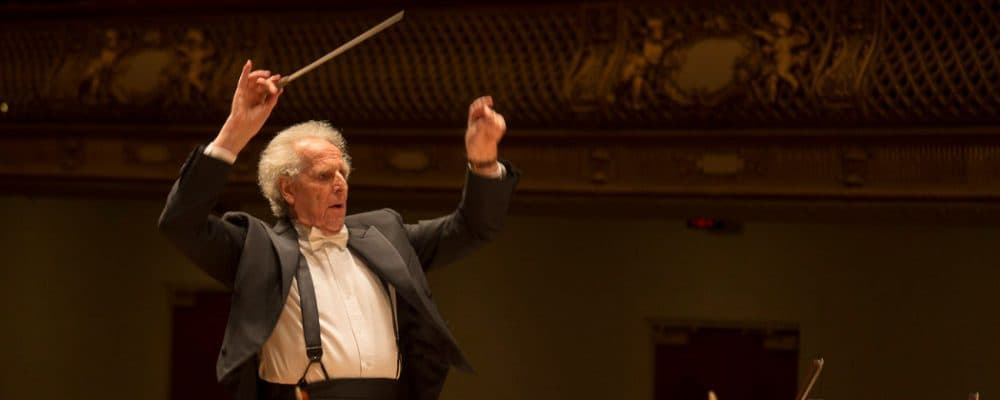
Zander is also the conductor of the astounding Boston Philharmonic Youth Orchestra, which will give two concerts this spring: Wagner’s “Meistersingers” overture, Prokofiev’s second violin concerto, Tchaikovsky’s “Romeo and Juliet” overture, and Mahler's third symphony (at Symphony Hall, April 14); and a new work commissioned by the BPYO (Clarice Assad’s “A Brazilian Journey”), an as yet unnamed concerto performed by the winner of a concerto competition, and Dvorak’s “New World” Symphony (Sanders Theater, May 12).
Stephen Lipsitt’s Boston Classical Orchestra has come back to life as the Bach, Beethoven, and Brahms Society, with concerts still at its old venue, Boston’s historic Faneuil Hall. Two concerts are on tap for this spring, one featuring BSO piccolo player Cynthia Meyers and clarinetist Tom Martin (March 10), the other featuring In Mo Yang and Cicely Parnas playing the Brahms Double Concerto (April 28).
Opera For Everyone
Our most consistently interesting opera company, Odyssey Opera (Gil Rose artistic director), is celebrating a great operatic heroine we don’t get to see much of — Helen of Troy — in some glorious rarities. First comes a staged production of Christoph Willibald Gluck’s ravishing “Paride ed Elena” ("Paris and Helen"), a landmark of 18th-century opera before Mozart’s supreme masterpieces (at the Huntington Avenue Theatre, Feb. 15 and 17). Then there’s a concert version of one of Richard Strauss’ least performed major operas, “Die Ägyptische Helena” ("The Egyptian Helen"), in which Hugo von Hofmannsthal, Strauss’ great librettist, gives us the post-Trojan War perspective on Helen and her estranged husband Menelaus (Jordan Hall, April 19).
Helen’s ecstatic awakening scene was a favorite aria of the soprano Leontyne Price:
The Boston Lyric Opera redeemed its spotty record last fall with an impressive premiere production of Tod Machover’s “Schoenberg In Hollywood,” the centerpiece of its “Dissenters & Rebels” season. This spring, the season concludes with two 20th-century works, Benjamin Britten’s beautiful and radically stylized “The Rape of Lucretia” (at the Artists for Humanity EpiCenter, March 11 to 17) and Danish composer Poul Ruders’ version of Margaret Atwood’s “The Handmaid’s Tale” (at Lavietes Pavilion of Harvard Athletics Complex, May 5 to 12).
Some of the best opera in Boston is presented by our schools. Boston Conservatory’s opera program has announced an exciting choice for its first opera this season, the Philip Glass/Allen Ginsberg multimedia “Hydrogen Jukebox” (at Boston Conservatory Theater, Feb. 7 to 10). The musicals presented by its impressive theater program (often among my favorite theatrical events of the season) will include Stephen Sondheim’s adaptation of Aristophanes’ “The Frogs” (April 25 to 28). New England Conservatory is presenting Mozart’s “The Marriage of Figaro” (at the Paramount Center, Feb. 9 to 12) and two-thirds of Puccini’s “Il Trittico” triptych, “Suor Angelica” and my favorite Puccini opera, the hilarious “Gianni Schicchi” (Huntington Theatre, April 10 to 13). And the Boston University Opera Institute will stage Leoš Janáček’s poignant animal fable “The Cunning Little Vixen” (Cutler Majestic Theatre, April 29 to May 2).
If you can’t attend a local opera performance, you can still go to one of the Live in HD telecasts direct from the stage of the Met to a movie theater in your neighborhood. The operas this spring include Bizet’s “Carmen” (Feb. 2), Donizetti’s “Daughter of the Regiment” (March 2), Wagner’s “Die Walküre” (March 2), and Poulenc’s “Dialogues of the Carmelites” (May 11).
Join The Chorus
Choral music has played a major part of musical life in Boston for centuries. The Handel & Haydn Society is the oldest choral group in the country, founded in 1815, when James Madison was president. I haven’t been completely convinced by the consistently (relentlessly?) lively performances I’ve heard under the direction of Harry Christophers, but audiences love him. The spring season includes an evening of Italian Baroque music mostly for the violin led and performed by H&H’s terrific concertmaster Aisslinn Nosky (Jordan Hall, February 22, 24). The highlight of the H&H season may be a Henry Purcell program centering on a complete performance of Purcell’s short but still potent operatic masterpiece, “Dido and Aeneas.” Heartache never sounded more haunting than in this affecting opera which beautifully marries words and music in a wide range of human emotions. Christophers leads the complete opera with staging by Aidan Lang, the acclaimed general director of the Seattle Opera (Jordan Hall, March 29 and 31).
I’m always impressed by the thoughtful programming of David Hoose and the Cantata Singers. Coming up are Haydn’s sublime late choral work “The Creation,” with such outstanding soloists as soprano Amanda Forsythe and tenor William Hite (March 22), and an exciting program of devotional music: Bruckner’s Mass No. 2 in E minor, Stravinsky’s too-rarely-heard Mass, and Gabrieli’s “Jubilate Deo” (St. Paul Church in Cambridge on May 17).
The Cantata Singers also have a chamber series at the American Academy of Arts and Sciences, with Alison Voth leading a concert of Women Composers of Europe (Feb. 8) and Women Composers of America (April 26).
The Intimacy Of Chamber Music
There’s always impressive chamber music around town. I’m a huge fan of Winsor Music, the organization begun by super oboist Peggy Pearson and now run by two other exceptional soloists, violinist Gabriela Díaz and clarinetist Rane Moore. I’m especially excited about The Díaz Family Concert, featuring Díaz and her illustrious family of musicians: brothers Roberto (viola) and Andrés (cello) and their parents, Manuel (viola) and Betty Anne (piano). The rangy program includes works by Beethoven, Dohnányi, and contemporary Bostonian Marti Epstein (First Church Boston, March 16).
The rest of the world has discovered the wonders of the Borromeo String Quartet, so its schedule has more away dates than home dates. But here, the quartet is playing two concerts at the Gardner Museum, a program of Mendelssohn, Ruth Crawford Seeger, and Leonard Bernstein (Feb. 23 and 24).
The Lydian String Quartet will appear at Boston College’s Gasson Hall (Feb. 10) and the Slosberg Music Center at Brandeis (April 13). I also wouldn’t want to miss their appearance in the Mendelssohn Octet, a fundraiser for the Mary Ruth Ray Scholarship. Ray, who died in 2013, was the beloved violist of the original Lydian Quartet. This “Reunion Concert” will include both the current members of the quartet and three former members, Wilma Smith and Daniel Stepner (violins) and Rhonda Rider (cello), along with violist Gillian Ansell of the New Zealand String Quartet (Brandeis, March 31).
Bandoneonist Julien Labro will join Emmanuel’s Arneis Quartet in another Late Night double header of classical and jazz tango music (Emmanuel Church, May 18).
The Sarasa Chamber Music Ensemble is a collective that plays on both period and modern instruments, with a repertoire that spans several centuries. Upcoming Sarasa concerts, at both the Harvard Epworth Church and the First Parish in Lexington, are one devoted to music based on or alluding to bird song (March 2 and 3) and two called “By special arrangement…” — chamber music based on earlier chamber works (May 18 and 19).
David Feltner’s Chamber Orchestra of Boston is admired for its fine playing and interesting programming. The next concert will include “Plain Song, Fantastic Dances,” a delightful piece by Boston composer Michael Gandolfi amalgamating classical music with jazz, blues and rock, and a fairly rare performance of Beethoven’s Septet (First Church Boston, March 9). Horn player Kevin Owen is the star performer for COB’s final concert of the season (May 11).
A Far Cry, the brilliant chamber orchestra without a conductor, has become a world-wide phenomenon. Among their Boston programs are a concert that asks the question “Is A Far Cry a giant string quartet, or is a string quartet a tiny A Far Cry?” (St. John’s Episcopal Church, March 2); “Gravity,” a program of 20th- and 21st-century pieces (Jordan Hall, April 12; Merrimack College, April 13); and a collaboration with the Lorelei Ensemble featuring a world premiere by Kareem Roustom dealing with the women characters in the "Odyssey" (Jordan Hall, May 17).
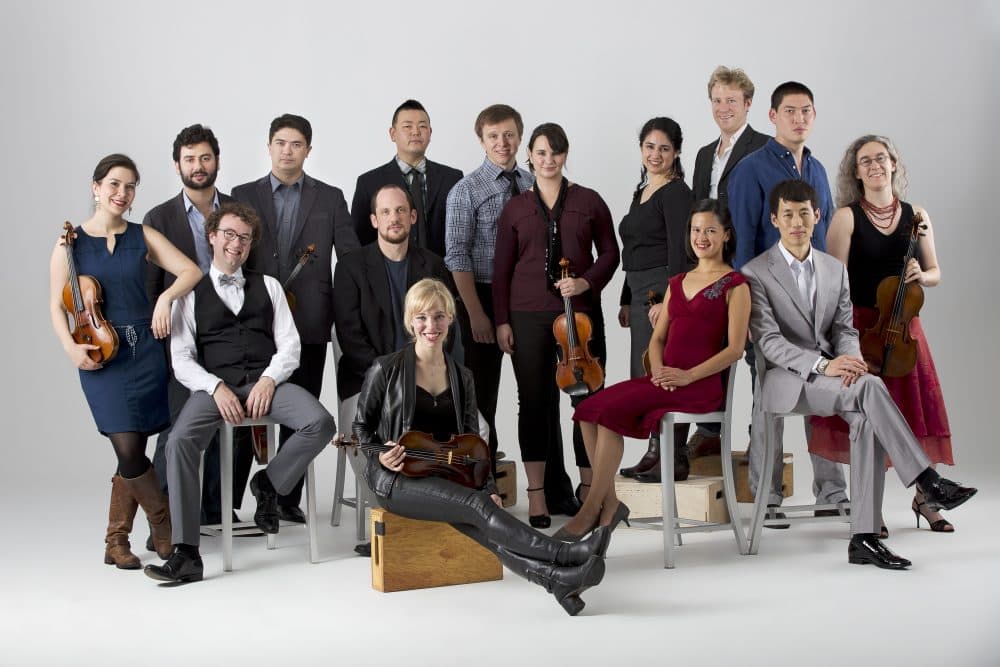
Hot Off The Presses
Our leading new music ensembles offer rich and promising concerts this season. Collage New Music, directed by David Hoose, returns with two programs at the Longy School’s Pickman Hall (Feb. 10 and March 31), the latter with the extraordinary soprano Tony Arnold. Richard Pittman’s Boston Musica Viva is completing its 50th season of contemporary music (Tsai Performance Center, Feb. 2 and March 10; Pickman Hall, April 13). And besides its Harbison tribute, BMOP is giving us a portrait of John Corigliano (Jordan Hall, Feb. 23) and an evening called “Desert Sorrows," with music by Leonard Bernstein and the immensely gifted former Bostonian Mohammed Fairouz (Jordan Hall, May 10).
What’s Old Is New Again
The Isabella Stewart Gardner Museum, in conjunction with its forthcoming Botticelli exhibit (which will include a rare loan of his painting “The Story of Virginia”), is presenting what it’s calling “possibly the first modern performance” of Alessandro Scarlatti’s as yet unrecorded 1697 opera “La Caduta de’ Decemviri” ("Fall of the Ten Men"), about the martyrdom of Virginia. The orchestra will be the baroque band ACRONYM (Calderwood Hall, Feb. 10).
Martin Pearlman leads Boston Baroque, our oldest period orchestra, in Handel’s last oratorio, the heartbreaking “Jephtha,” with a strong cast topped by celebrated tenor Nicholas Phan in the title role (at Jordan Hall, March 8 and 10). Pearlman has a new performing version of Monteverdi’s last and most ravishing opera, “The Coronation of Poppea,” semi-staged, with soprano Amanda Forsythe as the conniving Poppea and the magnificent countertenor Anthony Roth Costanzo as the all-too-willingly connived-upon Nero (at Jordan Hall, April 26 and 28).
There are four BEMF concerts in Boston, including viola superstar Jordi Savall leading Le Concert des Nations in a French Baroque program inspired by the landmark film “Tous les matins du monde” (Sanders Theatre, Feb. 24). And soprano Amanda Forsythe and baritone Jesse Blumberg appear as the title characters of Handel’s cantata “Apollo e Dafne” with the BEMF Orchestra. Knowledgeable Handel scholar and irresistible raconteur Ellen Harris will give the pre-concert talk (First Church in Cambridge, Congregational, April 6).
The spring concerts by the beloved vocal ensemble Blue Heron will include no music later than the 17th century. The first program will be English music from the Peterhouse Partbooks (Parish of All Saints — Ashmont, Feb. 8; First Congregational Church, Cambridge, Feb. 9). Then Johannes Ockeghem’s 15th-century Missa Prolationum (First Congregational, March 9). And finally, Guillaume de Machaut’s 14th-century “Remede du Fortune” (April 26 and 27).

